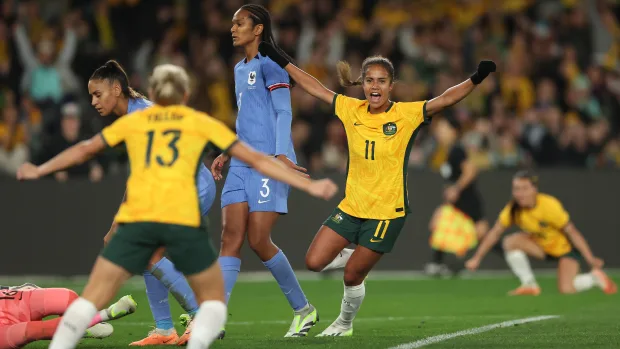By: Ming Sun
Haiti recently qualified for the women’s World Cup for the first time. The fact that the poorest country in the western hemisphere achieved this feat should have signaled that women’s soccer has a bright future. This is not entirely true, however. Behind Haiti’s success is a dark history of abuse towards its female players, exposing FIFA’s inability to protect its athletes.
The architect of the Haitian soccer program and former federation president, Yves Jean-Bart, has been tangled in scandals for years. He was accused of sexually abusing and assaulting many female underage players and overseeing a training center that allegedly became a facility of systematic abuse (The Washington Post). FIFA found him guilty of these crimes in November 2020 and banned him from coaching for life. They also fined him a million Swiss francs, equivalent to about $1.15 million USD.
The abuse starts back in 2011, when Jean-Bart, using FIFA funds, built a new facility that aimed to train and house both male and female players from all over Haiti from as young as 12. It was named after the FIFA president at the time, Sepp Blatter, coined the FIFA Goal Center Joseph Blatter. The children that lived and trained there called it the Ranch (The Washington Post). At its inception, the Ranch only had a few measures to protect its underage players, and FIFA did little to improve the Ranch’s policies in this regard. To that end, FIFA launched its first non-mandatory child safeguarding program in 2019 after the child safety issue came into public view and became escalated.
It was only recently that several former Haitian players came forward with accusations against Jean-Bart. One player, who goes by the pseudo-name Baraya revealed that Jean-Bart repeatedly groped her and forcefully kissed her when she was just 15 (The Washington Post). Three years later, when she was 18, four other Haitian soccer officials tried to sexually assault her (The Washington Post). When Baraya finally tried to leave the Ranch, Jean-Bart, who had her passport, refused to give it to her, effectively leaving her trapped there (The Washington Post).
Baraya’s account corroborated with another source. In a video posted to social media in 2020, four Haitian players made a song about life at the Ranch that featured a story of a player not being able to leave because Jean-Bart had her passport (The Washington Post). Baraya then tried to work with FIFA by giving a testimony, but FIFA claimed her testimony was inadmissible due to her anonymity. “I don’t think I’ve gotten any support from FIFA,” Baraya said. “I had to give up everything, and they’ve given me nothing” (The Washington Post).
Even without Baraya’s testimony, FIFA was able to ban Jean-Bart as previously mentioned. The ban, though, didn’t last very long. Jean-Bart appealed to the Court of Arbitration for Sport, the Swiss panel, that is responsible for arbitrating disputes in global sports. In March 2022, a three-man panel heard the case. While Jean Bart brought forth 66 statements from different people, including 21 testimonies, FIFA only had three witnesses, two of whom were discredited for being indirect sources. Their third witness, a Haitian player, was also dismissed on claims that she was inconsistent, despite experts saying that the inconsistency in recounts of childhood trauma is natural. Ultimately, the decision to ban Jean-Bart was reversed, proving that FIFA has not effectively protected its players.
This case illuminates the serious issue of sexual abuse in today’s soccer industry and FIFA’s incompetence when it comes to solving these problems. One can only hope that this will change, allowing future soccer players to fully realize their careers without trauma and abuse.
Link to article: https://eb18600f7bb2916037f5ee8e636ce199.cdn.bubble.io/f1690729054520x410161769959514400/Haiti%20abuse%20allegations%20expose%20FIFA%27s%20struggle%20to%20protect%20women%27s%20soccer%20players%20-%20The%20Washington%20Post.pdf











